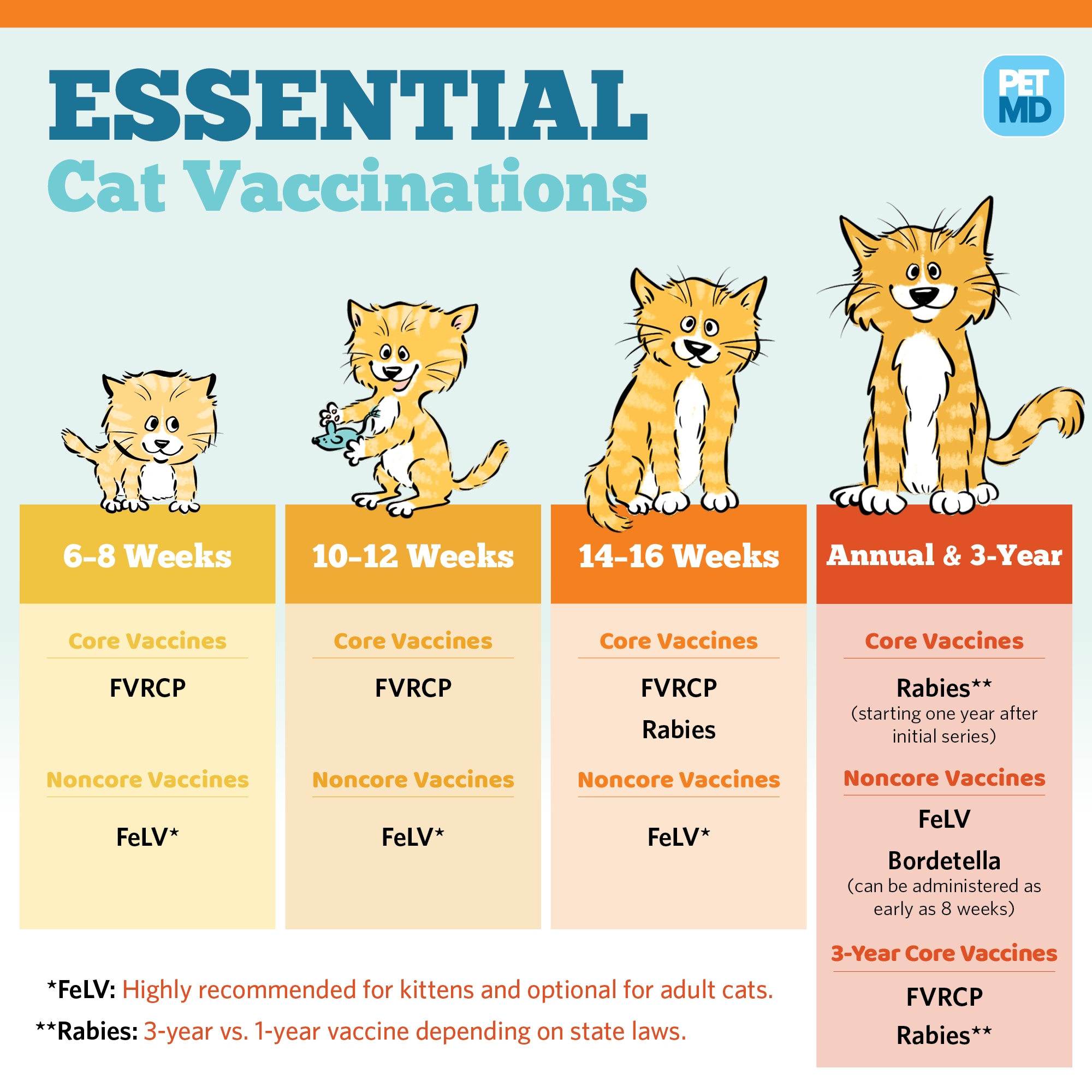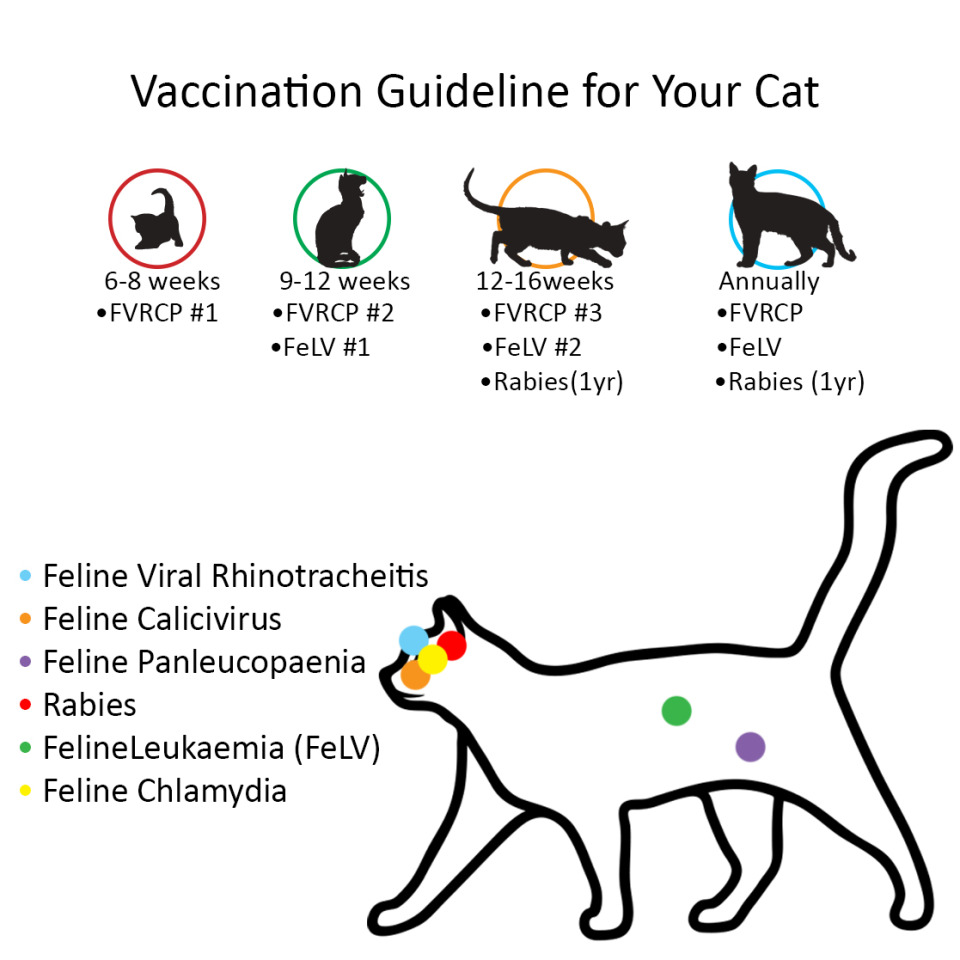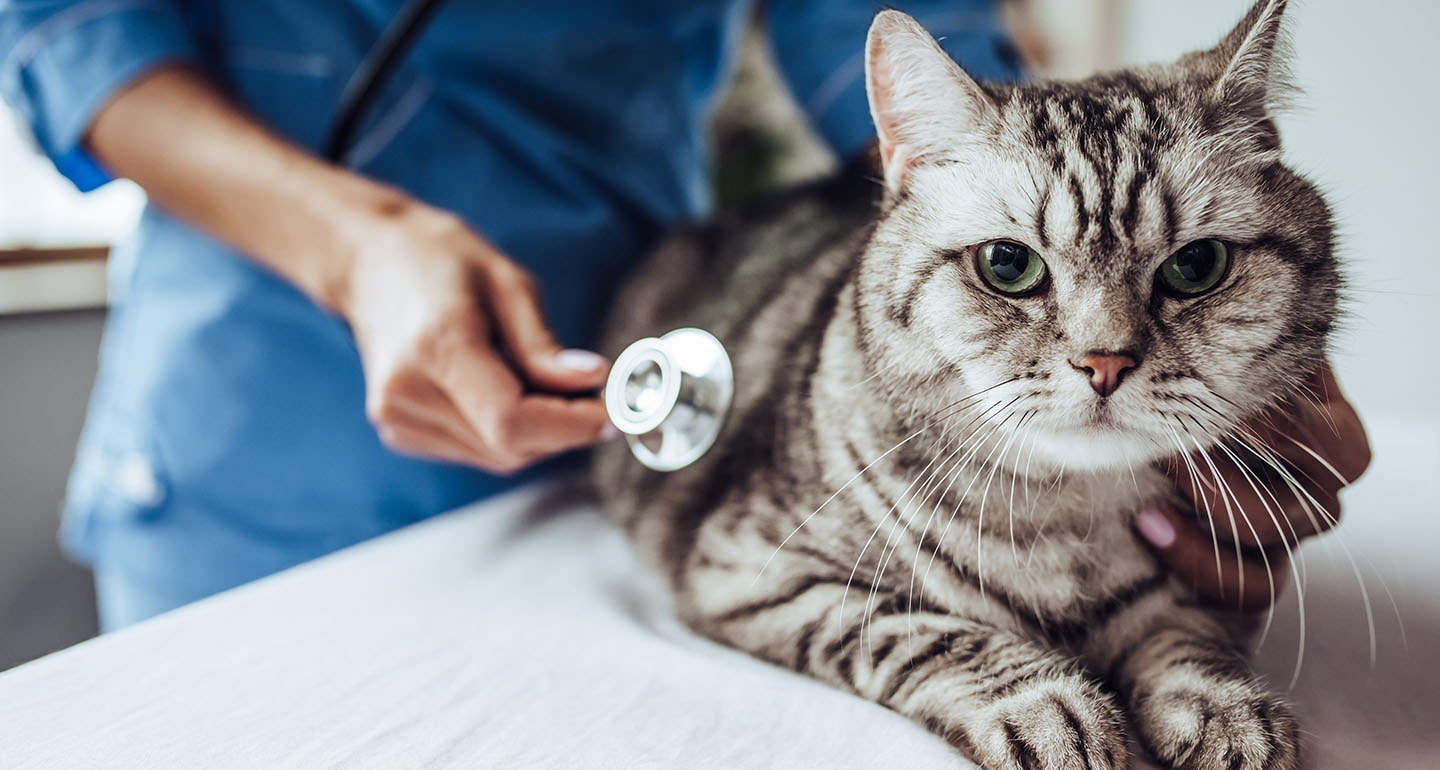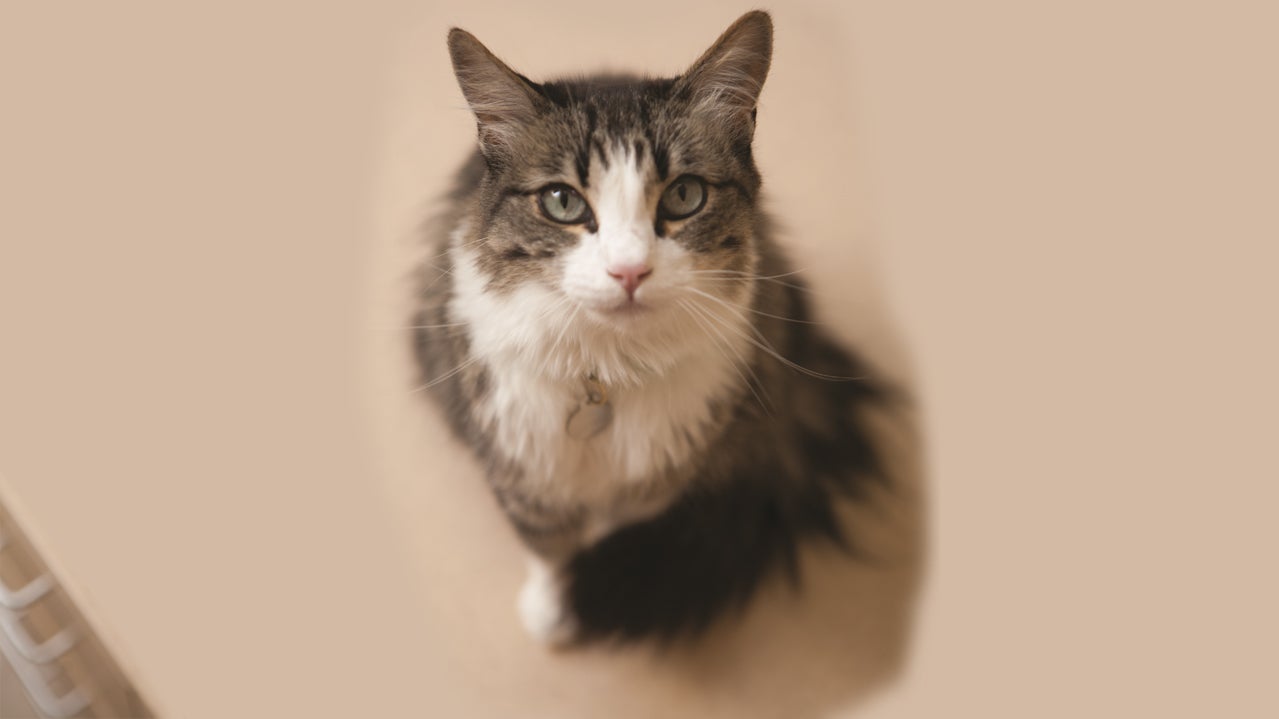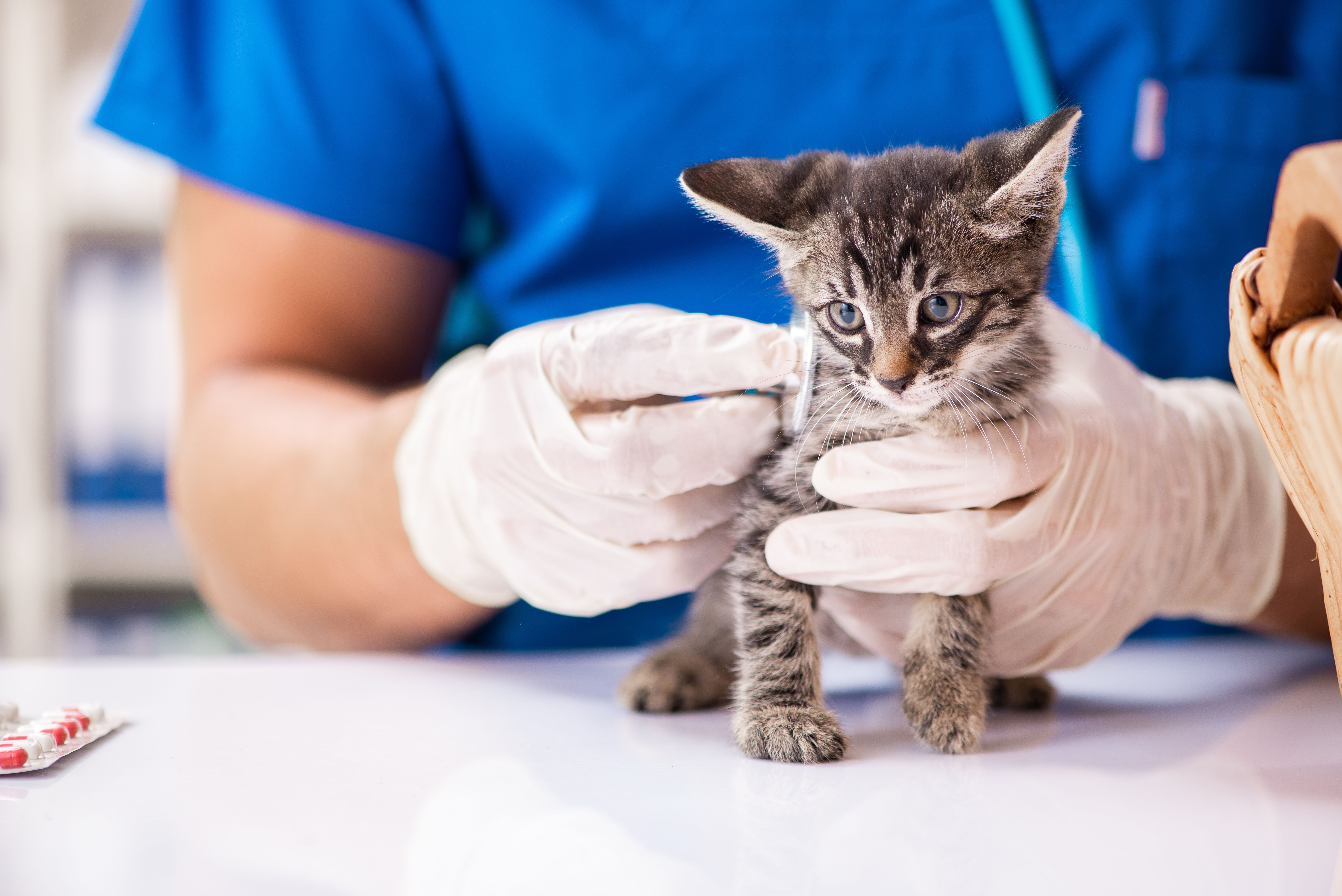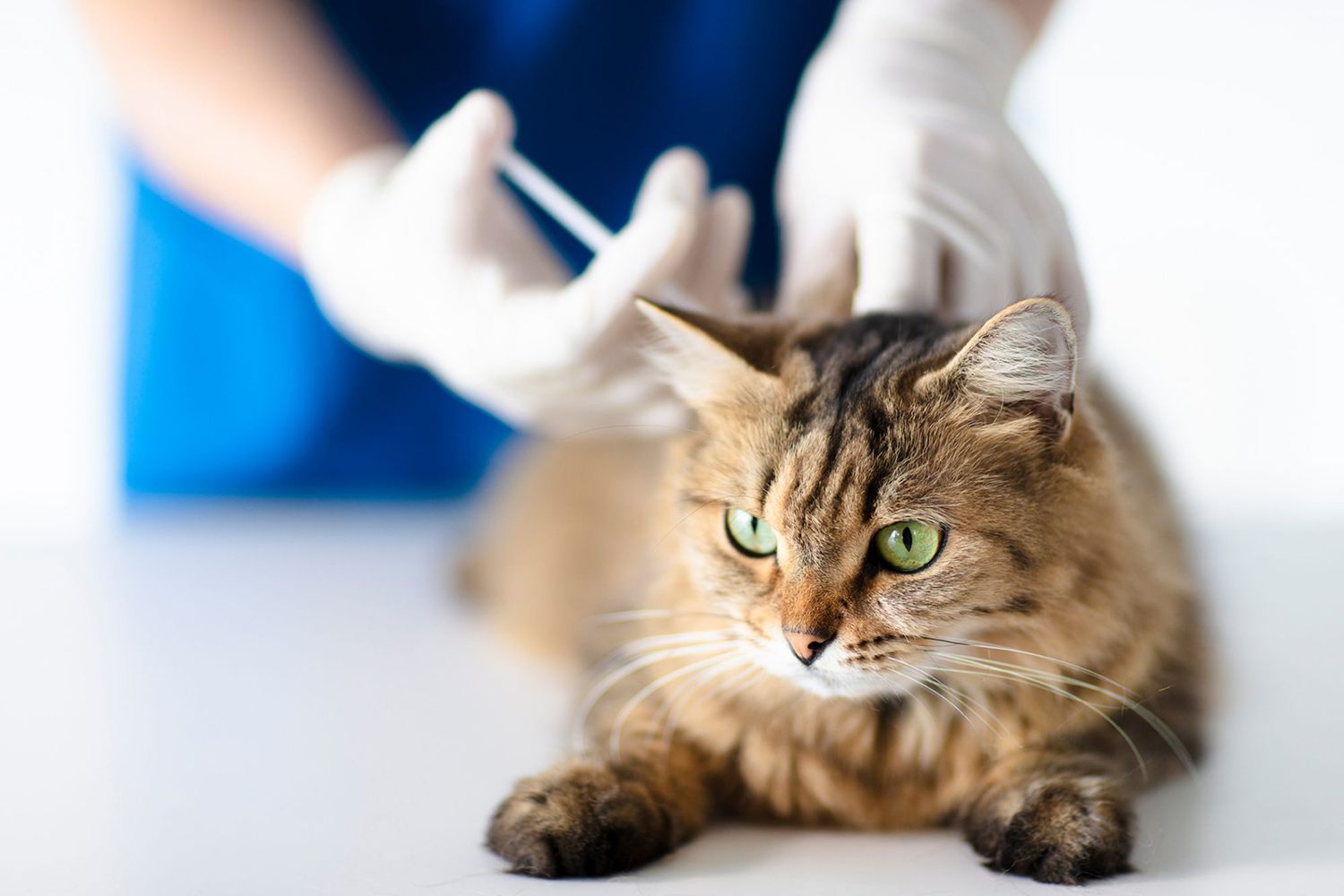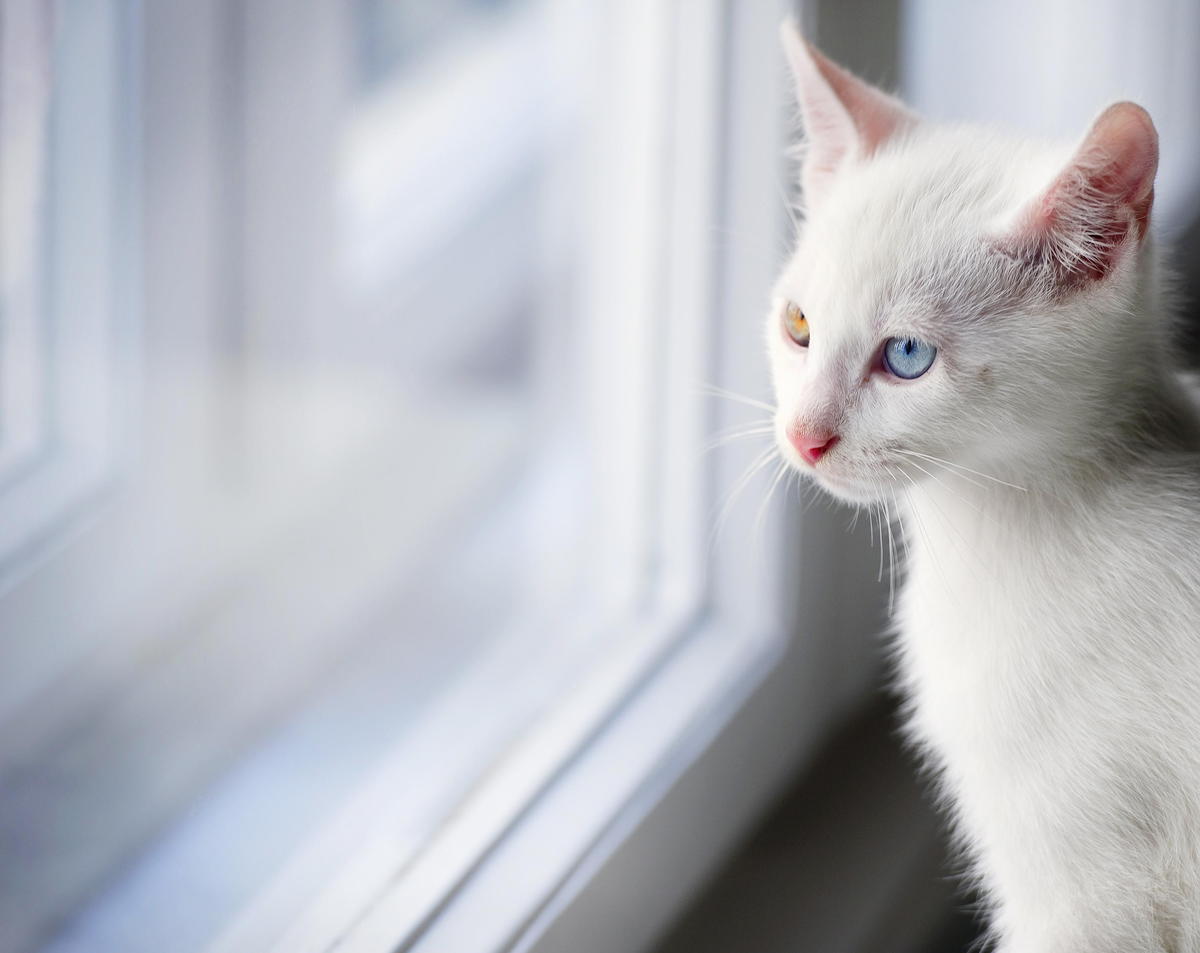Fvrcp Shots For Cats
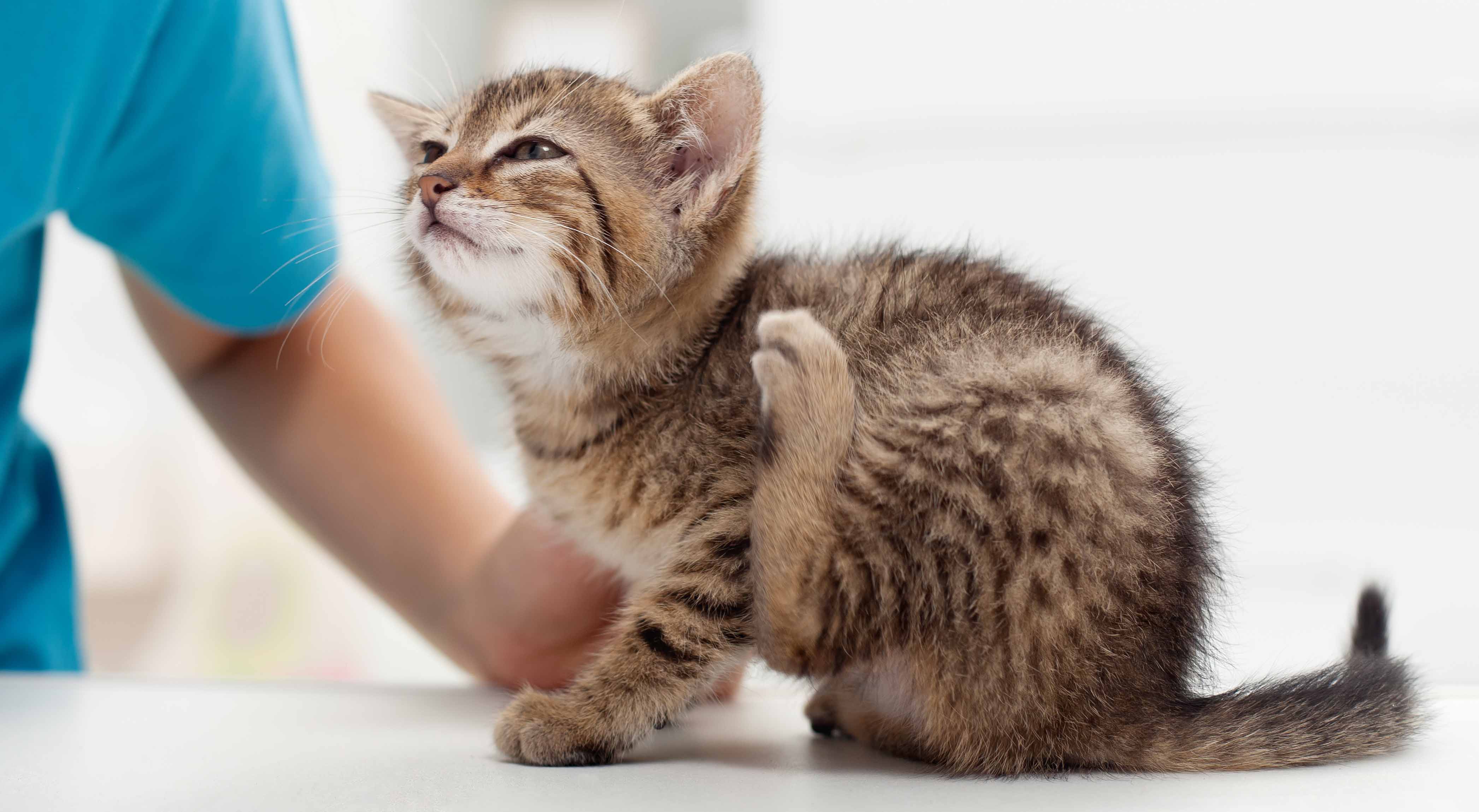
The core FVRCP vaccine also prevents rhinotracheitis and calicivirus which are upper respiratory viruses of cats.
Fvrcp shots for cats. Rhinotracheitis is a herpes virus and causes fever sneezing a runny nose and. All healthy kittens and adult cats without a known vaccination history should be routinely vaccinated SQ or IM for panleukopenia rhinotracheitis and calicivirus FVRCP. FVRCP an acronym for Feline Viral Rhinotracheitis Calicivirus and Panleukopenia is a vaccine so effective at staving off deadly feline viruses that its considered a core vaccine for all cats.
Its true that if a kitten is initially given an FVRCP vaccine at 4 weeks of age and gets re-vaccinated every 2-3 weeks then they could receive up to 9 vaccines by 20 weeks of age. You and your veterinarian should decide which vaccinations your cat receives annually based on your cats lifestyle age and health status. HESKA Feline UltraNasal FVRCP Vaccine Indications.
Adult cats with unknown vaccination records should receive a FVRCP vaccination plus a booster. The FVRCP vaccine is vital since it protects against three feline viruses. Kittens should receive their first FVRCP vaccination at 6 to 8 weeks of age followed by three booster shots once a month.
The series of vaccines is necessary because it takes a number of booster shots to convince the immune system to recognize the components of the vaccine. For cats older than 16 weeks of age two doses of vaccine containing modified live virus MLV FHV1 FCV and FPV given 3-4 weeks apart are recommended. The FVRCP vaccine for cats is generally given to kittens every three to four weeks until they are 16-20 weeks old.
FVRCP distemper The FVRCP feline viral rhinotracheitis calicivirus panleukopenia also referred to as a distemper vaccine is first given to kittens as a combination vaccine every three to. Whether you adopt your cat as a kitten or as an adult veterinarians recommend the FVRCP cat vaccine and periodic booster shots as part of a cats routine health care plan. Even strictly indoor cats who do not have exposure to the outdoors may sit by an open window or screen or are exposed to these diseases as.
Adult cats should receive a booster once every year or two according to your vets recommendation. These are three separate viral infections that are common in cats causing serious andor life-threatening illnesses if unvaccinated kittens or cats are infected. The series of vaccines is necessary because it takes a number of booster shots to convince the immune system to recognize the components of the vaccine.
